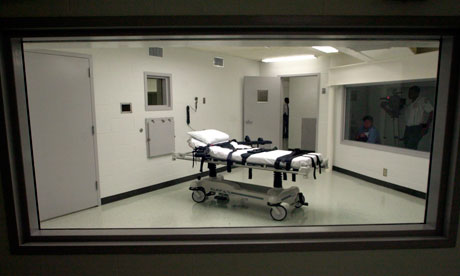By Tyler Yates
Impunity Watch Reporter, Middle East
CAIRO, Egypt — Egyptian security forces and military are targeting female protesters, subjecting them to torture, sexual assault, and threats of rape. The practices are very similar to those employed pre-revolution say various international and Egyptian human rights organizations.

“Nothing has changed overall. Law enforcement officers still feel that they are above the law and that they don’t have to fear prosecution, it’s a green light that legitimizes an excessive use of force, sexual assault and torture,” said Heba Morayef, Egypt Researcher for Human Rights Watch.
Since January, it has appeared that the military was protecting protesters, both male and female, during a revolutionary process that ended in the overthrow of long-time president Hosni Mubarak. With the power of the government now in the hands of the military critics say that they have resorted to the same sorts of brutality used by the former regime, most notably during protests in 2005 and 2007.
A viral video, filmed recently, shows Egyptian soldiers beating and disrobing a female protester. At least three men expose the woman’s midriff and bra as they stomp on her stomach and batter her head with batons. The video has drawn international scorn, including a condemnation of the “systematic degradation” of Egyptian Women by U.S. Secretary of State Hilary Clinton.
“Women protesters have been rounded up and subjected to horrific abuse. Journalists have been sexually assaulted. And now, women are being attacked, stripped, and beaten in the streets,” she added.
“This systematic degradation of Egyptian women dishonors the revolution, disgraces the state and its uniform and is not worthy of a great people.”
In response to this beating thousands of Egyptian women took to the streets in protest. It was the largest all-female protest since Egypt’s independence, demanding the end of military rule.
The Egyptian government released an apology via Facebook for the beating and expressed “its great regret to the great women of Egypt for the violations that took place” and promising that “all legal measures have been taken to hold accountable all those responsible for these violations.”
There is skepticism about seeing real change come from the government’s response. There was not explicit order banning or condemnation of violence and sexual assault on female protesters given anywhere in the apology.
The usage of violence against female protesters does have a purpose. Egypt is a conservative, male-dominated society. Women are not supposed to express themselves openly in the public sphere. The violence is likely meant not only to punish those who violate this norm, but also to deter those who might consider speaking out in the future.
For more information, please see:
Afrique en ligne — Egypt urged to prosecute sexual assaults on protesters — 22 Dec. 2011
ABC — Female Protesters Targeted By Egyptian Government, Say Activists — 21 Dec. 2011
Al Jazeera — Egyptians protest against beating of women — 21 Dec. 2011
Huffington Post — Sexual Violence Has No Place in Egypt’s Public Forum — 20 Dec. 2011


